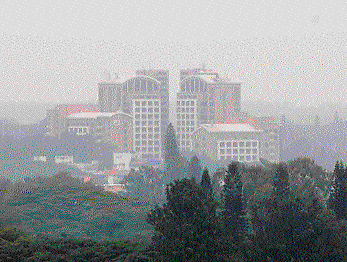
The US-based Rockefeller Foundation has selected Bengaluru as one among the three Indian Resilient Cities (RC) for its 100 million dollar project that will focus on building global cities equipped to handle social, economic and physical challenges.
Surat and Chennai are the other two cities selected for the project. Melbourne, New York, Glasgow, Los Angeles, Mexico City and San Francisco are the other global cities that have joined the global urban resilience initiative.
The Rockefeller Foundation launched the1 00 Resilient Cities or 100 RC project in 2013, its centenary year. A resolution was passed on urban renewal to help cities around the world build resilience to social, economic and physical challenges.
The project defines ‘Resilience,’ as not just the shocks urban cities face such as fires, earthquakes, floods but also the stresses that weaken a city over time, such as crime, endemic violence, ethnic issues, identity, class and caste and social conflicts, competition over limited resources and social and economic inequality as a whole.
Serious problems
Michael Berkowitz, president, 100 RC project, had earlier told Deccan Herald that Bengaluru has serious problems concerning water connections, electricity, transportation and infrastructure. “We will help build a city that can respond to adverse events and is better able to deliver basic functions to its residents. We will develop a resilience strategy for Bengaluru to help cope with the problems it faces.”
The project attains critical importance because India is going through rapid urbanisation and global transformation.
In the first round of invitations, the Foundation received around 400 applications, of which 32 were selected.
The second round of invitations were sent in December 2013, when Bengaluru was proposed as a city for resilience building.
The number 100 (cities), was conceived as the Rockefeller Foundation turned 100 in 2013 and wished to celebrate the occasion with a project for social good. The idea was then to select 100 cities in the world that needed resilience to cope with varied challenges.
The project will bring into the planning process stakeholders across the city government, private sector, non-profits, NGOs and civic groups.
Roadmap to resilience
Cities that are part of the 100 Resilient Cities are provided with resources necessary to develop a roadmap to resilience along four paths - financial and logistical guidance for establishing a new innovative position in the city government - a chief resilience officer who will lead the city's resilience effort; experts to help chalk out the resilience strategy and support the office; connecting member-cities to solutions, service providers and partners who can help implement the resilience strategy; finally, a membership in a global network of member-cities which will enable the selected cities to learn from each other.